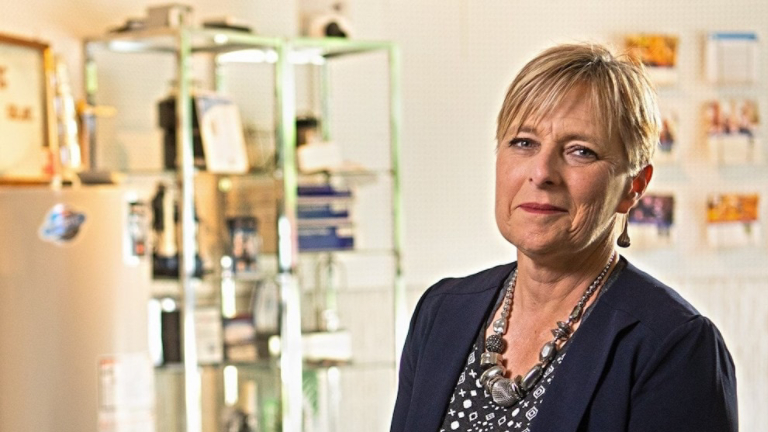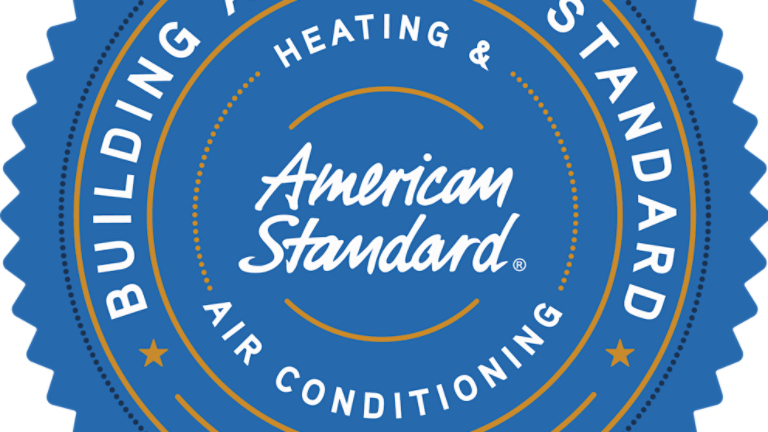Blog
Published: March 11, 2022
The contracting business is changing and folks like Beth Rovazzini are leading the way.
Beth Rovazzini has been in charge of Indianapolis-based B&W Plumbing and Heating for 40 years. It’s a family business, first established in her parents’ garage in 1961. Growing up, Beth never thought she would take over the company – that would be her older brother’s job. She went to college at Indiana University and earned her degree in accounting.
Quick Facts
- Topics
- Contractor Spotlight
Beth Rovazzini has been in charge of Indianapolis-based B&W Plumbing and Heating for 20 years. It’s a family business, first established in her parents’ garage in 1961. Growing up, Beth never thought she would take over the company – that would be her older brother’s job. She went to college at Indiana University and earned her degree in accounting.
“I was working at a Big Five accounting firm and hated it with a passion,” she says. “This was back in the early 80s, and the rules were really strict. Women in accounting weren't allowed out of the office without a jacket or to even go anywhere by yourself.”
After leaving the firm, she came home and lent her considerable accounting skills to the family business. She managed the books, payables and receivables, job costing for new construction and other areas. Beth wasn’t sure what her next move would be, but she was enjoying the work, which was good enough for the moment.

Being in Charge
Beth declined her dad’s office and set herself up in one of the cubicles. She likes being in the mix, getting the pulse. “It just fits my personality,” she says.
She found the business was a good fit for her, giving her a lot of flexibility. Her son was practically raised there.
“People would walk by him all the time when he was little and say, ‘hi guy,’ so those were his first words.”
She’s hustled from day one, partially because that’s her nature and partially because she’s always understood the nature of small companies. “I can remember being in middle or high school, and my parents would just come home and say, ‘If we don't get this contract, we might have to sell the house.’”
For Beth, the way to avoid that outcome was to be as efficient as possible, and sometimes that meant making hard decisions. One employee had been with the company for several years but was having trouble adjusting to newer technologies and ideas. Computers and just-in-time delivery were a little beyond him. Beth and others tried to bring him along, but he was set in his ways and eventually had to be let go.
“That was a really tough thing to do,” she says, “having to tell him. But it was necessary.”
For Beth, one of the main ingredients to creating a sustainable business has been building community. She is constantly mentoring her young staff, and even keeps ample stocks of healthy food in the office, so they don’t always end up buying fast food for lunch. She hosts regular breakfasts, giving apprentices and senior employees opportunities to chat about the business and everything else.
Life in the Trades
Beth is the only female construction company president and majority owner in the Indianapolis area, though there are husband and wife teams. She jokes that it’s a good thing her husband isn’t involved in the business, as it gives them necessary space. Still, being a female boss in what has been a male-dominated arena has never been a problem for her.
“Sometimes, I walk into a job trailer, and I’m the only woman in the room with 40 men,” says Beth. “It does go silent for a moment because they aren’t expecting me, but if I show that I’m confident, that I belong there, nobody pays any attention to it. People think there’s more sexual harassment in the trades, but that hasn’t been an issue. As long as you can do the job, nobody really cares.”
Recruitment and Retention
Having been in the business for so many years, Beth has seen some major changes. She notes that many of her young male apprentices are just as concerned over childcare as the women she employs. It’s no longer on the mom like it used to be.
These are the types of employee issues she must track to be successful. Like most areas right now, construction is facing a severe labor shortage, and Beth often thinks about ways to bring more people into the industry.
“First of all, we need to educate parents, as well as guidance counselors because they are the key to everything in high school,” she says. “A lot of parents have no idea that their children can make a really good living in the trades. They think their child will be a laborer forever, making slightly above minimum wage and don't have any concept of what it can be. Three of my third-year apprentices have all purchased homes.”
She feels the industry could do a lot more to work with 16- and 17-year-olds, developing internships and finding other ways to establish those relationships. She often speaks at schools, trade fairs and other venues to debunk myths about the trades.
“I tell parents their kids can make a really good living straight out of high school, and they’re kind of amazed,” says Beth.
She notes that the trades have developed a much better work-life balance than other careers, which may seem counterintuitive to many people.
“Back in the day, guys would work overtime as much as they could, even seven days a week,” says Beth. “Now, Saturdays are precious, people don’t want to give that up. That's a conversation we have upfront with people, letting them know how much they will be expected to work so that they can feel good about it.”
Beth spreads the word whenever she can, not only to support B&W’s own recruitment efforts, but to let young people know the trades are a choice that’s available to them, and for many, it’s a pretty good choice.
“It’s a great career,” she says. “It's one of the few areas today that you can really start your own business without having an immense amount of cash. Most people don’t have the funding to start their own restaurant, for example. In the trades, you can start out small and scale up or keep it at whatever scale you want; you have that kind of flexibility.”
The Relationships
Over the years, Beth has dealt with many different companies. Some were great experiences, others not as much. She has a soft spot as an American Standard Dealer for residential and Trane for commercial business. She has always been impressed by the company’s customer service for all clients.

She’s also impressed by the way American Standard and Trane Commercial stands by the equipment. Beth feels the company is as focused on satisfying her customers just as she is.
On another level, the training and support her people receive make a big difference. When something isn’t operating correctly, customers can’t discern why – whether it’s the installation or the unit itself. That’s why she feels it’s so important to keep up to date. Understanding the significance of a specific metric can help her people recommend the right products. Understanding the ins and outs of complex installs can make the difference between success and failure.
“The majority of our customers trust us to know all of this – there's just way too much information coming at them every day to spend a lot of time figuring out what unit will work best for them,” says Beth. “So, it's really important for us to have the most up-to-date knowledge and training so we can ask the right questions, understand their unique situation and provide the options that are going to give them the best value.”
